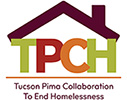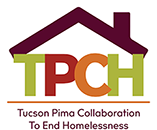

Striving Toward Racial Justice
Issue #3- Leadership Commitment to Racial Justice
TPCH released Striving Toward Racial Justice: A Call-to-Action for Pima County Community-Based Organizations, in partnership with the University of Arizona Southwest Institute for Research on Women in November 2021. As we begin 2022, we are calling on community organizations and our housing partners to deepen our shared resolve to advancing racial equity. This email series provides a summary of key concepts and strategies discussed in the Call to Action and i packed with useful resources and tools to help community organizations as they strive toward racial justice.
In this issue, we introduce the first of 7 key actions defined in the Call to Action: Public Commitments to Racial Justice Among Organizational Leadership
Don’t miss our next issue in which we introduce Action 2 – Engaging in Collective Racial Justice Work within the Organization. Can’t wait? Click here to download the full Call to Action now.
Action 1: Organizational Leadership Publicly Commits to Racial Justice
In some organizations, diversity, equity, and inclusion work is underway, albeit subtlety and without a public announcement.
Without a clear proclamation from organizational leadership that racial justice is an organizational priority, the work is not likely to have a significant impact.
Staff who are not in leadership positions may be placing themselves at great risk for repercussions or ostracization when they strive for significant changes. While it is important to include people from all levels of the organization, leadership must play an active role and set the stage for true change.
Recommended Strategies
Hire a reputable outside organization or consultant to facilitate agency-wide racial justice work.
Form a diverse group charged with leading these efforts and compensate people for this additional labor. Groups must include people of color; however, the labor of staff of color in this effort must not be compulsory.
Demonstrate open communication about race and racial justice.
Demonstrate a willingness to engage in difficult conversations and a willingness to change.
Begin to consider and challenge all aspects of the current structure and systems in place.
Respect and acknowledge the work of people/groups who are already doing this work for your organization, and enter the space as a participant.
It is key for organizational leaders to embrace what it means to begin doing racial justice work.
Organization leaders, who will bear the brunt of critique from multiple angles, prepare to actively listen and receive criticism.
Strike the delicate balance between expecting people of color to lead the work and excluding people of color entirely.
Understand that some organizations that think that they have mastered racial justice may be the ones inflicting the most harm.
Accept that some staff members will resist racial justice work and may leave the organization.
Expect the path to be imperfect and the work to be unending.
Resources for Organizational Leaders
A Brief Timeline of Race and Homelessness in America
Jeff Olivet, Amanda Andere, Marc Dones, Britttani Manzo, and Jessica Venegas
Anti-Racism Resource Guide: Becoming an Inclusive Leader
Denise Martinez, Nicole Del Castillo, and Kenya Ferguson, University of Iowa Healthcare
How White People Conquered the Nonprofit Industry
Anastasia Reesa Tomkin
Public Health Resources for Understanding Environmental Racism
Public Health Degrees
Race to Lead: Confronting the Nonprofit Racial Leadership Gap
Sean Thomas-Breitfeld and Frances Kunreuther, Building Movement Project
The 4 Secrets: The Hidden Factor of Nonprofit Boards and Racial Equity Change
Kelly Bates, Interaction Institute for Social Change
The Six Signature Traits of Inclusive Leadership
Juliet Bourke, Deloitte
20 Subtle Ways White Supremacy Manifests in Nonprofit and Philanthropy
Vu Le, Nonprofit AF
White Supremacy Culture – Still Here
Tema Okun
Authors
It is with the upmost admiration, respect and appreciation that we thank the authors for their critical contribution to this call-to action. In addition to their daily tireless commitment and relentless dedication to achieving racial justice in our community, they lent their expertise and passion to the hopeful notion that local organizations are willing to better serve their clients and better support their staff. Each of you makes our community a more just place.
Claudia Powell
Casey Chimneystar Limón-Condit
Marisol Flores-Aguirre
Anna Harper-Guerrero
Mildred Manuel
Andrés Portela III
Claudio Rodriguez
| DOWNLOAD THE FULL CALL TO ACTION |


